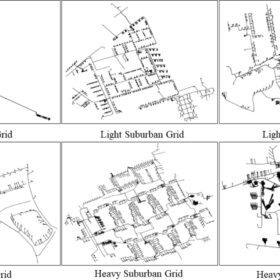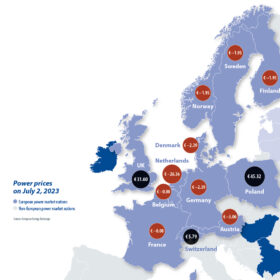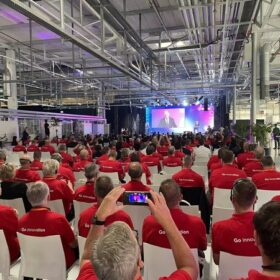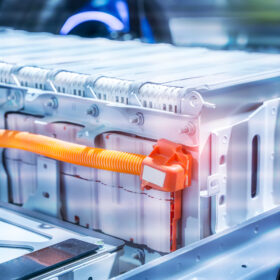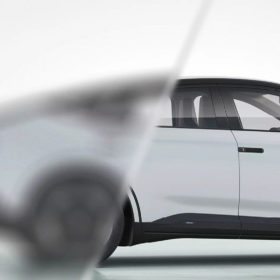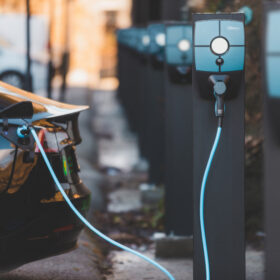Hybrid PV-biogas microgrids for EV charging
An international research team has examined the potential use of hybrid microgrids that integrate PV and biogas for electric vehicle recharging in Karnataka, India. Their findings indicate that this combined approach offers economic and environmental benefits compared to separate biogas and PV systems.
Suburban grids most vulnerable to high levels of EV, heat pump, PV
Researchers from the Netherlands have assessed the potential integration of heat pumps, electric vehicles, and PV systems into distribution grids. They have discovered that suburban grids could face a higher risk of overload. By using actual data from Dutch distribution grid operators, they believe their methodology could be applied to study energy systems in other nations.
Europe’s power price rollercoaster
Almost every weekend since Easter, European generators have been paid to power down plants but some Northern European nations are experiencing record electricity prices. An energy system set up for fossil fuels is in urgent need of reform, according to Gerard Reid, co-founder and partner of Alexa Capital.
Vehicle integrated PV system for retractable car-roofs
At a recent automobile industry event, Germany-based Webasto announced its retractable vehicle integrated PV system for car-roofs was integrated into a new electric sports utility vehicle (SUV) by an undisclosed US equipment manufacturer.
China’s Gotion launches battery production in Germany
Gotion High-Tech has started making battery packs at its 20 GWh automated plant in Göttingen, Germany. It expects deliveries to clients in Europe to commence in October.
The Battery Cycle part two: Device lifespan
Having discussed battery chemistry in a previous article, Volytica diagnostics here examines the causes of battery degradation and how to extend device lifetimes, ahead of a pv magazine webinar tomorrow.
Urban shadowing on solar-powered vehicles
New research shows high potential for solar-powered vehicles across the world, providing between 11 km/day/kWp to 29 km/day/kWp of extended range in open areas, enabling significant levels of self-sufficiency.
The Battery Cycle: NMC, LFP, LTO – What’s the difference?
With battery storage such a crucial aspect of the energy transition, lithium-ion (li-ion) batteries are frequently referenced but what is the difference between NMC (nickel-manganese-cobalt), LFP (lithium ferro-phosphate), and LTO (lithium-titanium-oxide) devices and their underlying chemistry?
Bringing the benefits of affordable EV charging points to apartment blocks
One of the benefits of electric vehicle (EV) ownership is being able to plug your car into a wall at home ready for the following day’s commute but the idea is not so simple for apartment dwellers. Harald Seip, of EV charger company Elaway, suggests ways EU policymakers could solve that problem.
Weekend Read: Planning a Hamba-lution
As the global North ponders e-mobility dilemmas such as how to source sufficient materials to meet electric car demand, fresh evidence has emerged of how solar can decarbonize transport and farming in Africa.

